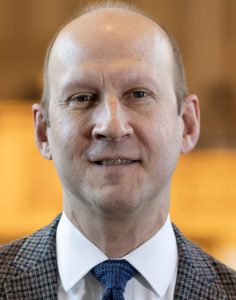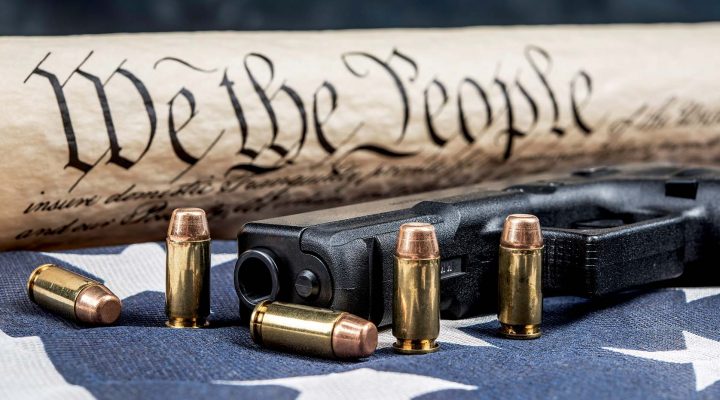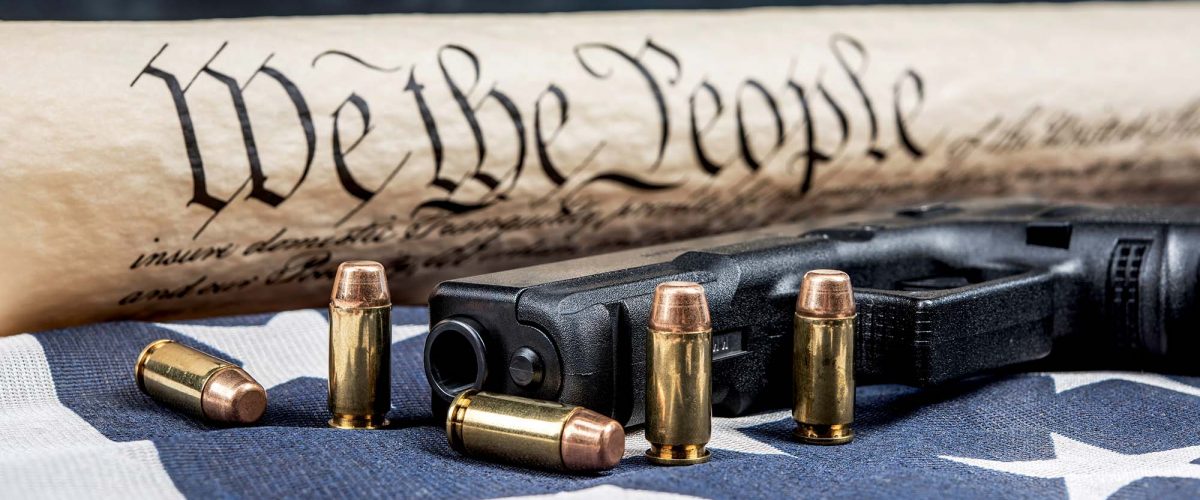Two years ago, I wrote an essay that tried to untangle the legal and political issues that evolved over the 20th century that led to the current impasse around guns. There’s no panacea, I argued, but at least we can clarify why we all feel so stuck.
Due to COVID, there were some delays in the publishing timeline, but the essay finally was published a few days ago. I open the essay with a rundown, not of all gun violence in our country, but just the very worst mass shooting events, those with 10 or more fatalities, with numbers updated as of last month.

John Carter
Within three days of the essay’s publication, another mass shooting occurred, this time in Maine, and the statistics in that section of the essay are already, tragically, out of date. (The essay is part of a special issue on the topic of guns and gun violence of an open-access theological ethics journal, available here.)
But in this current moment, there’s no ability to sustain public attention, even for a horrific mass shooting. Between the terrorist attacks on Israel Oct. 7 and the unfolding humanitarian catastrophe due to obliteration bombing in Gaza in the days since, the ongoing war in Ukraine, the recently resolved UAW strikes against two major car makers plus the actors’ strike in Hollywood, and the political turmoil in the House of Representatives — the latter of which makes a federal government shutdown in about a month much more likely — not to mention terrifying new findings about the inevitability of the collapse of the West Antarctic Ice Sheet, to paraphrase last year’s sleeper hit movie, we live in an “everything everywhere all at once” world.
Part of the reason it feels this way is that in the aftermath of the Cold War, we no longer have an agreed-upon neutral “public reason” to serve as the defining language of public moral deliberation. Don’t mistake me — I don’t necessarily mourn the loss of what scholars call “Cold War liberalism.” But in its absence, we’re all going to feel like we’re talking past one another, tired of getting yelled at by would-be discussion partners and frustrated at having our own utterances twisted or misunderstood.
On one hand, this lack of a “public reason” is what’s created the opening that Christian nationalism and Catholic integralism are trying to step into.
On the other hand, it’s meant that even for folks (among whom I count myself) who resist the literal profanity of using religious language to satisfy political ends, we’re at a loss for moral language to discuss what’s right and wrong in the context of how we want to live together with our fellow citizens and engage in collective self-government.
“We’re at a loss for moral language to discuss what’s right and wrong in the context of how we want to live together with our fellow citizens and engage in collective self-government.”
As I argue in my essay, without a coherent public reason, we’re having to make do with a “dog’s breakfast of legal and constitutional textual analysis, scientific research (which finds itself increasingly politicized, whether in the context of climate change or public health), economic growth measured in capitalist metrics (“jobs!” referring to quantity not quality, and worker productivity not satisfaction), and an individualistic, blandly spiritual-but-not-religious right to happiness, played out in a field of Machiavellian power politics — which the recent infatuation with game theory has encouraged — fueled in many cases by ideology serving only as opportunistic means for personal ambition. Everything else, under the guise of libertarianism, is relegated to private morality.”
Perhaps to the surprise of many BNG readers, certainly to the surprise of my younger self, I argue for a re-engagement with the natural law tradition. To be clear, this is not “your (church) father’s natural law” as some readers may have learned about it in seminary. Rather, invigorated by the work of feminist, queer and Black theologians, among many others, this is a natural law that insists “ethics can and must be informed by the human bodies, lived experiences and distinct traditions of those who historically have not been considered when the prevailing norms were made unless it was to ensure their exclusion.”
In the Catholic neo-scholastic variant of the natural law, the Catholic hierarchy arrogated to itself the power to authenticate what the “true” natural law is and then pronounce this “law” in the form of absolute moral norms that should apply to everyone, Catholic or not. But this is an almost ironic inversion of what the natural law originally was understood to be.
Instead of being a pronouncement by one segment of society as proscriptive for everyone, natural law (whose roots far predate the modern Catholic church) was understood in earlier times as moral discourse that everyone had some degree of access to, regardless of national or religious laws and customs. Even the Puritans had an understanding of the natural law. Natural law, I like to say, using a thoroughly Gen-X metaphor, was the original “all skate.”
To explain the relevance of the natural law in the context of gun rights, one of the thoughts I had when I started writing the essay was to unpack the idea held by some conservatives that the right to carry a gun in this country is a “God-given” right. Many liberals and progressives love to lampoon such a conservative, depicting them as an unlearned rube. But the reality is more nuanced: the conservative is actually on to something, even if it’s misunderstood.
The right to “bear arms,” however one might interpret that phrase, is guaranteed by the Second Amendment to the U.S. Constitution and is not “God-given,” even if one were to impute some degree of divine inspiration to the Constitution’s writing. But there is a natural law right to individual and collective self-defense, something that has been recognized in many if not all societies since time immemorial.
That natural law right is the background of the Second Amendment right, even as these are conceptually distinct rights.
“Before the 20th century, the validity of the natural law basis for the common law right to self-defense would not have been contested.”
Before the 20th century, the validity of the natural law basis for the common law right to self-defense would not have been contested. As jurisprudence moved away from any recognition of the natural law, however, for the right to be legally cognizable, it had to be shoehorned into some existing positive law, such as the Constitution — hence the need for labored mis-readings of the text of the Second Amendment.
As law professor Nelson Lund has pointed out, there also existed an “ancient common law prohibition against ‘terrifying the good people of the land’ by going about with dangerous and unusual weapons.” But good luck getting the U.S. Supreme Court to find a way to recognize that in the current positivist climate.
There remain, to be clear, numerous substantial issues to be worked out pertaining both to the natural law and to its interaction with legal jurisprudence. But I don’t think the problems with natural law discourse are greater than trying to wring some last bit of insight out of parsing the grammar of the Second Amendment or politicizing the historical understanding of the Constitution under the guise of divining what was the “original intent” of the Founders.
We have to find a way to talk to one another, or the shouting is just going to get louder — and, I’m afraid, so will the gunfire.
John Carter serves as visiting assistant professor of law at the Wake Forest University School of Law and in the Program for Leadership and Character and as visiting assistant professor of religion, law and public life at Wake Forest University School of Divinity.


